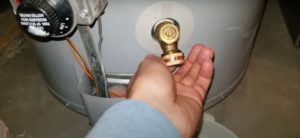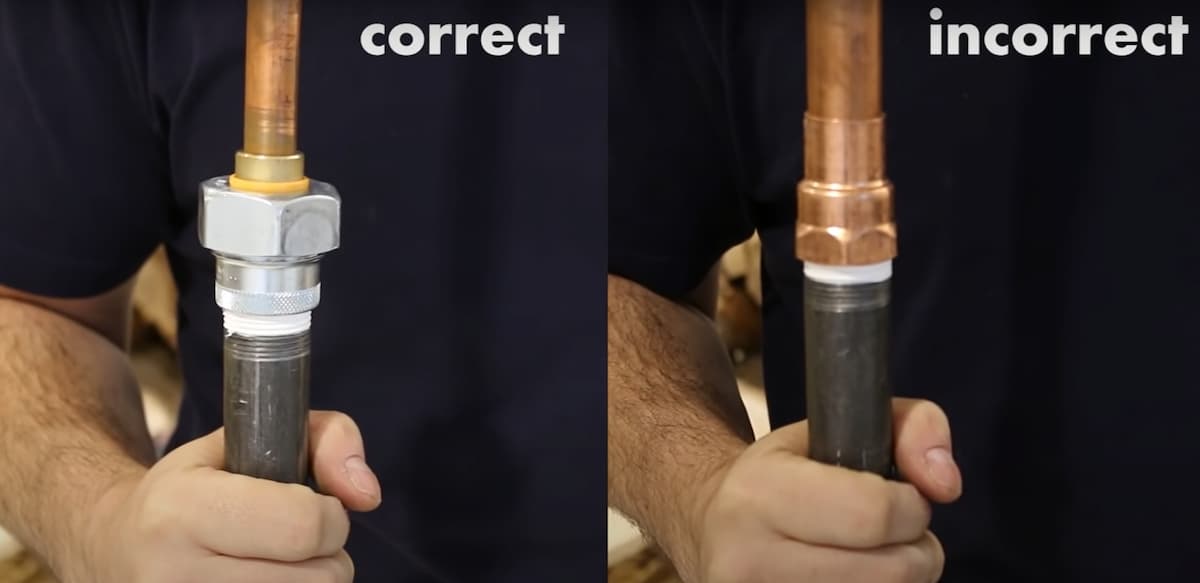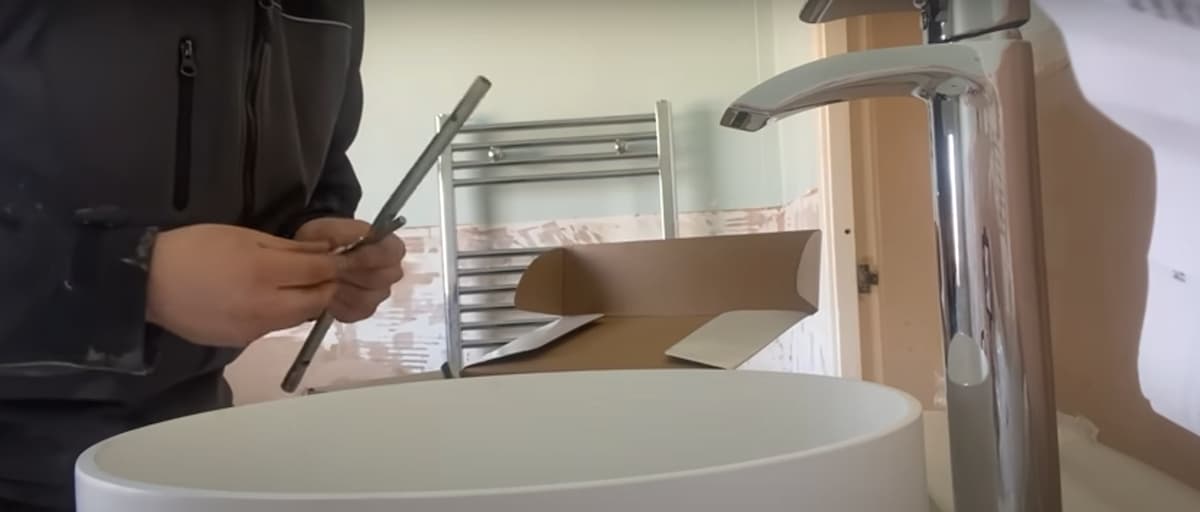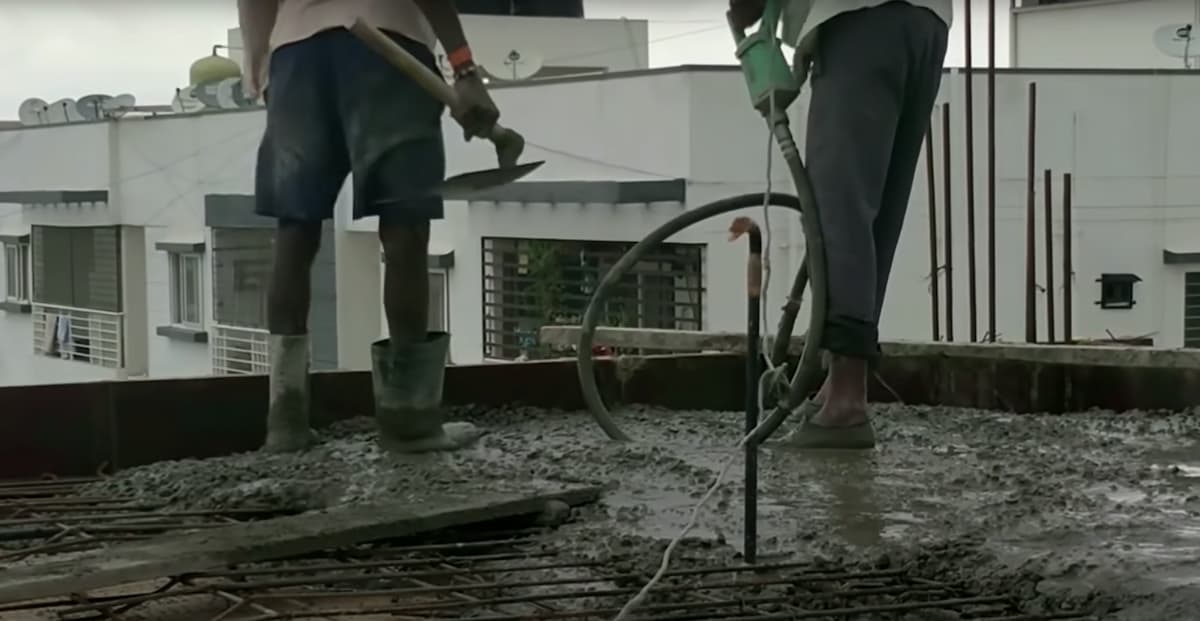
What can cause low hot water pressure? | How to fix low hot water pressure? | Solar hot water low-pressure problem? | Effects of no pressure with solar hot water | No hot water pressure in the shower | Can a leak in the hot water system cause pressure to drop?
Low hot water pressure occurs when the boiler produces more cold water than hot.
The boiler controls the temperature of your water by constantly mixing cold and hot water to deliver an appropriate temperature when needed. When you have low hot water pressure, there is a struggle between the two because it doesn’t know which way to turn. If it produces some hotter or colder, it will be a constant struggle to keep the temperature right.
Dissimilar metals in your system can cause corrosion on the metal pipes, which hinders water flow and contributes to low hot water pressure. Badly placed heating thermostats or slightly loose connections are common causes as well.
What Can Cause Low Hot Water Pressure?
There are many causes for low hot water pressure. Dissimilar metals in your system can cause corrosion on the metal pipes, which hinders water flow and contributes to low hot water pressure. Badly placed heating thermostats or slightly loose connections are common causes as well.
One of the most common causes for low hot water pressure is sediment building up within your tankless water heater. This can result in excessive debris that clogs up the outflow and keep it from providing adequate water pressure. You might notice an unusual drop in your hot water pressure or a gradual decrease over time, which would be caused by this sediment buildup.
Another cause for low hot water may be filter blockages on your primary heating system. Filters act as strainers so that any particles do not end up in your piping systems and damage them. As they accumulate with use, you should take care to ensure they are changed regularly so no blockages occur.
How to Fix Low Hot Water Pressure?

To fix these issues you may need to replace some parts of your plumbing system so it may be worth calling in a professional plumber, here is a list of potential issues:
1) Check if You Have Open Valves – Shut off valves behind all other appliances besides the heater so that you get maximum pressure from your boiler. Then try opening each valve one by one after 20 minutes (to let them cool down). If the pressure is better after opening some valves, you will know what is causing the pressure loss. It may be a faulty valve or lose connections at other places that need fixing to improve water pressure. It may be worth checking a pressure regulator for further details.
2) Check the Flow of Cold and Hot Water – You can mix hot and cold water in a bucket to check if there is some kind of blockage in your system. If there is no circulation, it means that there must be some problem with the pipes inside your walls or shut-off valves for draining purposes. Check that the shutoff valve or water supply lines/plumbing lines have not been affected as this can affect the water systems & water heaters as well as cause hot water system problems.
3) Expand Your Service Entrance Pipe (SEP) – Try pushing back the SEP from one wall to another by connecting wooden stakes. SEPs are usually laid outside foundations of homes where they tend to get clogged up by frost heaves over time. If it’s outside, try and put a bigger pipe in its place. Or if that is not possible, loosen the SEP slightly so that water can flow through more smoothly.
4) Install a Booster Pump – In case there are some damaged or badly placed piping connections on your system and you want to prevent corrosion from occurring further, install a booster pump. It will increase the pressure of your hot water by producing more quantity of warm water for regular use.
5) Fix Leaks – If your home has an open shower valve all day long then this might be causing low hot water pressure as well as a huge loss of energy costs due to heating cold water again and again. To fix this problem simply replace the old ones with new models that do not leak.
6) Clean Your Valves – If you have an older style valve with a float ball, there’s a good chance it is leaking due to damaged washers or the operation of the float itself is worn out and needs to be replaced. You can call in a plumber to take off the handle and clean out all debris if any so that it does not cause more damage in future.
7) Check for Corrosion – There might be some corrosion inside the pipes that need further inspection by using a camera or endoscope to understand where exactly leaks are coming from. Periodic maintenance should be carried out on your plumbing system at least once every 2 years or so. Also, check every year during winter for possible freezing water problems in case you live somewhere that experiences harsh winter.
8) Remove and Clean Your Boiler – This is one of the most important preventive measures that can be taken to extend the life of your boiler. When there is a buildup of debris in or around the heating system’s heat exchanger, it will surely lead to hot water pressure problems due to loss of efficiency from mixing cold with hot water.
9) Check for Leaks – If you live in an older home, chances are that there might be some broken pipe connections inside those walls which may not have been detected because they were hidden behind durable plaster and paintwork. It’s a good idea to get a professional plumber to run an inspection on them during spring maintenance before larger issues result due to internal corrosion.
10) Get your Boiler Checked – A boiler should last you at least 15 years or so. If you notice that it is leaking, gurgling and other strange noises when operating, call in a professional plumber to check if there are any cracks on the heat exchanger and replace them immediately before the heating system fails entirely due to corrosion.
Solar Hot Water Low-Pressure Problem?
The solar hot water low pressure problem is the decrease in the heat that occurs when hot water is not delivered at a high enough pressure to the tap. Solar heating is a sustainable technology using solar radiation for heating purposes. The sun’s energy power heats up sealed tanks containing heated liquid, which flows through pipes and into the house in order to provide hot water to householders. There are a few reasons why a lack of pressure can occur in water tanks, especially if you do not live in warmer climates.
The most common reason for solar hot water low pressure is government regulations regarding maximum temperature deliverable to taps, which limits the flow rate of hot water. Another problem that can cause low-pressure problems in the water supply system is when a tank heats up quicker than expected thus causing less amount of liquid at the top level of the tank. A third minor reason behind this issue is where dirt and sediment get trapped inside hose bibs so as to reduce circulation through pipes that carry cold water into heating systems.
No hot water pressure can also be caused by damaged pipe connections, which may result from corrosion or other external factors. A clogged filter on your heating system may cause an increase in pressure. This is easily fixed by cleaning or replacing the filters once or twice a year.
Effects of No Pressure with Solar Hot Water
Low pressure does not only lead to loss of heat, it can also give rise to other issues such as water waste and more energy consumption of your boiler with additional costs to fix these problems. If you have a solar heating system then it is best for you to watch out for some common symptoms associated with this problem so as to prevent any major failures in the long run.
No Hot Water Pressure in the Shower
Yes, it is common. Low hot water pressure in showers can be caused by a number of things which may range from a clogged filter to a leak or even a faulty nozzle. It is necessary to figure out where the issue lies then replace the damaged parts as soon as possible. Otherwise, low pressure can lead to larger problems with the solar system in the long run.
Clogs in the filter can reduce pressure when water is passing through the shower. The clog may be caused by a number of things from sediment to lose particles that end up lodged within the material of the filter. To prevent this type of problem, it is necessary to clean or replace filters regularly. If not, clogs will eventually form and decrease pressure within your system permanently.
Can a Leak in the Hot Water System Cause Pressure to Drop?
Leaks are another common culprit for low hot water pressure in showers. Water leaks into solar thermal systems may cause damage over time, so it is important to always check on any potential problems with pipes or connections whenever low hot water pressure becomes an issue in showers. Also, you must consider repairs soon after finding signs of leaks in your solar thermal system.
Leaks can cause low pressure in the hot water system by causing a slowdown of the overall process, resulting in less warm water available for use. Any leak that exists will reduce the amount of hot water available to be used. In order to use full capacity from a solar energy system, you must fix any issues with leaks immediately.
If ignored for too long, leaks may result in further damage, including flooding and costly clean-ups and repairs. Leaks can also cause some discolouration on tiles as well as crown molding around showers if not cured early enough.





